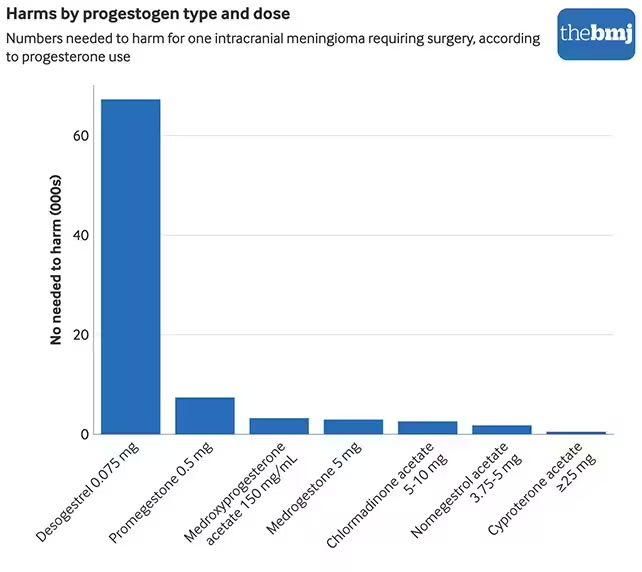4 Minutes
Overview: New Research Links Prolonged Desogestrel Use to Meningioma Risk
A major epidemiological study has revealed a small but measurable increase in the risk of developing meningioma—a type of generally benign brain tumor—among women using the desogestrel contraceptive pill for an extended period. While the overall risk remains low, the research brings fresh attention to the safety of long-term hormonal contraception and underscores the importance of personalized discussions between patients and healthcare providers.
Scientific Background: Hormonal Contraceptives and Brain Health
Meningiomas are tumors that form in the membranes surrounding the brain and spinal cord. Although they are usually non-cancerous, these tumors can cause neurological symptoms such as headaches, seizures, or vision problems, and in some cases, may require surgical removal. Scientific interest in the potential links between hormonal therapies and meningioma risk has grown over the past decades, especially regarding synthetic progestogens—the class of hormone-mimicking drugs to which desogestrel belongs.
Desogestrel is a synthetic version of progesterone, a hormone vital for regulating the menstrual cycle and supporting pregnancy. Synthetic progestogens are frequently used in oral contraceptives but have been flagged in earlier studies for a possible association with hormone-sensitive tumors like meningioma.
Study Details: Assessing Risk through Large-Scale Data
Conducted by researchers from the French National Agency for Medicines and Health Products Safety, the study analyzed medical records from 92,301 women with an average age of nearly 60 years. Using a retrospective case-control approach, the team compared 8,391 women who had undergone surgery for meningioma with matched controls who had not developed brain tumors.
The investigators found that for women taking desogestrel for over five consecutive years, the risk of developing a surgically relevant meningioma was about 1 in 17,331. By comparison, women who used desogestrel for less than five years had a lower risk of 1 in 67,300. This suggests that, while the absolute risk remains modest, it does increase with longer exposure.
Importantly, the study's observational design cannot definitively establish that desogestrel causes meningioma—a fact the researchers openly acknowledge. Still, they recommend caution with extended use and encourage regular monitoring, particularly for those taking desogestrel at the common 75 microgram dosage for over five years.

Implications for Contraceptive Choices and Patient Monitoring
The research also provides some reassuring findings. Notably, the elevated risk appears to dissipate about a year after discontinuing desogestrel. This reversibility aligns with clinical observations for other progestogen-induced meningiomas, suggesting that stopping the medication may allow the tumor to shrink without immediate surgical intervention.
"Monitoring for meningioma should focus on women who have used desogestrel 75 micrograms for more than five continuous years, in whom we found a small risk of meningioma," the study authors wrote, echoing the need for personalized risk assessment.
Expert commentary stresses that the findings should not provoke panic but serve as a prompt for dialogue. Dr. Gilles Reuter, a neurosurgeon not involved in the study, noted that cessation of desogestrel upon tumor detection "may preclude the need for surgery as regression of meningioma can be expected." Dr. Gino Pecoraro, an obstetrician-gynecologist from the University of Queensland, adds, "Generally speaking, I do not believe this study should raise cause for alarm but merely drive discussion by women with their doctor around what is the best contraceptive option for them."
During the same analysis, researchers also examined levonorgestrel, another synthetic progestogen widely used in contraceptives. Encouragingly, they found no increased risk of meningioma with levonorgestrel, even after more than five years of use, potentially making it a preferable option—particularly for older women with additional risk factors.
Conclusion
In summary, prolonged use of the desogestrel contraceptive pill is linked to a slightly elevated risk of developing meningioma, a typically benign brain tumor. While the absolute risk remains small, these findings underscore the need for informed decision-making and routine health monitoring, particularly for women considering long-term hormonal contraception. Switching to alternative options such as levonorgestrel may reduce tumor risk, but any medical decisions should be tailored to individual needs through consultation with healthcare professionals. Ongoing research into the safety of different contraceptive agents will continue to inform best practices in women's health and neurological safety.



Comments